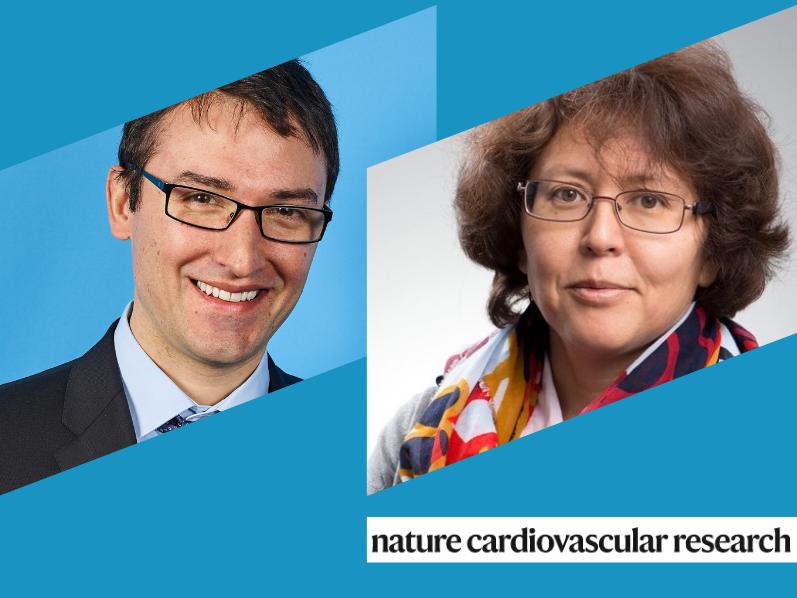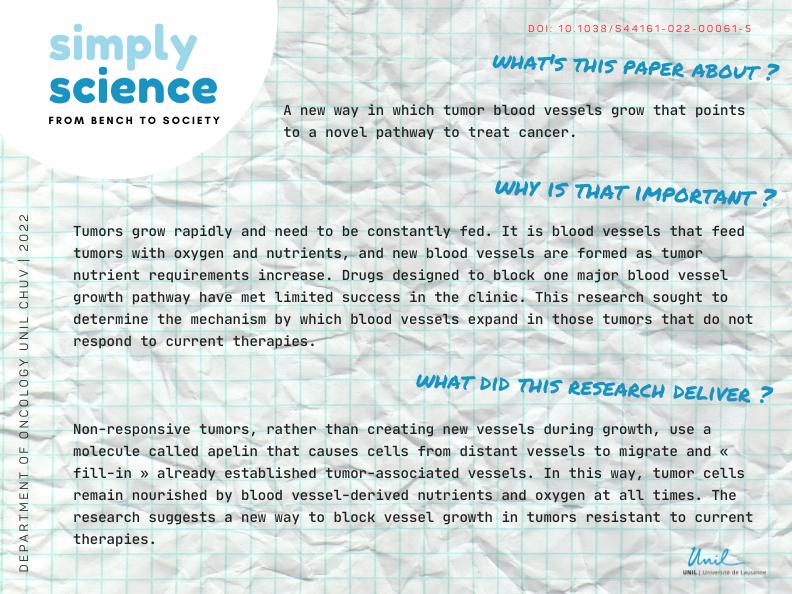Intestinal progenitor cells and tumor growth sustained by Apelin-driven endothelial cell migration
Researchers identify endothelial cell migration as a novel mechanism through which transformed intestinal stem cells expand the tumor vasculature and avoid destruction by anti-angiogenic therapies in colorectal cancer.

All tumors require new blood vessels to supply oxygen and nutrients and feed their rapid expansion. Vascular endothelial growth factor A (VEGFA) is an important growth factor for both developmental and pathological angiogenesis. Colorectal cancer (CRC) tumours enriched in transformed epithelial progenitor cells with high WNT signalling are less responsive than CRC subtypes with low WNT activation to VEGFA blockade, therefore researchers investigated the mechanisms by which WNThigh normal and transformed intestinal progenitor cells maintain their vascular supply.
This project*, led by Tatiana Petrova with first-author Jeremiah Bernier-Latmani and published in Nature Cardiovascular Research, reveals that both normal and transformed intestinal progenitor cells are ensconced in normoxic niches with low levels of VEGFA signalling and are surrounded by VEGFA-independent vessels. Mechanistically, the Petrova Lab shows that in response to progenitor cell expansion, endothelial cells induce expression of the small peptide apelin. In turn, researchers discovered that apelin was necessary for endothelial cell migration from distant vessels towards the progenitor cell niche, which enabled the coordinated growth of both epithelial progenitor and vascular compartments. In the absence of such migratory endothelial cells “filling-in”, progenitor niche blood vessels rupture, which leads to an abnormally hypoxic niche with decreased progenitor cell proliferation and fitness, which in turn, arrests CRC tumour growth.
The research was conducted in collaboration with Lausanne University Hospital (CHUV), the Swiss Institute of Bioinformatics (SIB) and the Swiss Federal Institute of Technology, Lausanne (EPFL). The project developped, in part, from data within the PhD thesis (2017) of Dr Christophe Cisarovsky, MD-PhD in the Service of medical oncology at the Lausanne University Hospital.
It was supported by the Swiss National Science Foundation (SNSF) and the Swiss Cancer League.
*Apelin-driven endothelial cell migration sustains intestinal progenitor cells and tumor growth
